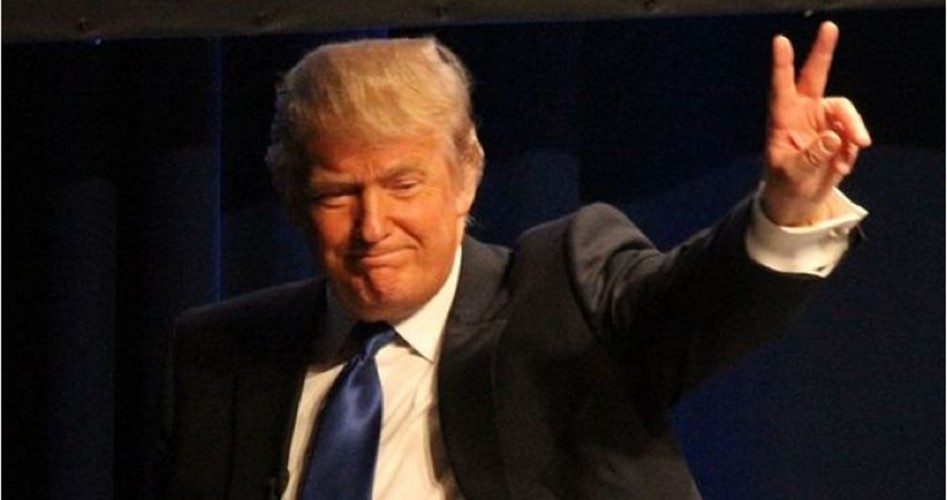
Donald Trump’s meetings with Republican members of Congress on Thursday in an effort to unify the party for the general election campaign against Democrat candidate Hillary Clinton met with mixed results.
Trump’s meeting with his principal rival for the Republican nomination, Senator Ted Cruz of Texas, was described by Cruz as “positive and productive”; House Speaker Paul Ryan characterized their get-together with the expected nominee in the House as “great,” with other members describing the meetings as either “awkward,” or contentious.
Perhaps the brightest spot of the day for Trump was his meeting with Cruz at the headquarters of the Republican National Committee. Trump asked Cruz to speak at the Republican National Convention, and Cruz told reporters that he had accepted. “I said I’d be very glad to do so,” Cruz said. Rance Priebus, the chairman of the Republican National Committee, sat in on the meeting and described it as “a good conversation,” which was “very polite and cordial and normal.”
That is a big step considering how the contest between the two men ended in the spring, with Trump re-tweeting an unflattering photo of Cruz’s wife, alongside a glamour shot of his own wife (a former model), with the caption “the images are worth a thousand words.” Then, Trump raised questions as to whether Cruz’s father, a Cuban immigrant, had somehow been involved in the assassination of President Kennedy.
Cruz responded, hotly referring to Trump as a “serial philanderer,” and a “pathological liar.”
So, a “cordial” meeting would have to be considered a great meeting by those Republicans who want to see Trump and Cruz reconcile as part of the larger effort toward party unity. In substance, the two agreed to no longer work at odds, but rather to seek out ways they can work together on those issues on which they share common ground. At least that was the observation of a senior Trump official, who specifically mentioned that Trump sought Cruz’s assistance in selecting judicial nominees. Cruz is a former solicitor general of Texas, and argued several high-profile cases before the U.S. Supreme Court.
Cruz is not yet endorsing Trump, but allowed that he would not rule out doing so.
Any reconciliation with Cruz, who has the second-highest number of delegates, is of critical importance, with hundreds of delegates to the Republican National Convention openly dissatisfied with the Trump candidacy, either for some of his statements or actions, or they worry about his electability — or both. There is an organized movement to adopt convention rules in which delegates would not be bound by the results of the state primaries and caucuses. Many states have laws that dictate that delegates to the convention vote according to the results of the primary elections in their states, but some Republicans argue that state law cannot bind the convention actions of a private organization such as the Republican Party. If the delegates became unbound, it is uncertain as to the final result, but party activists fear a rupture that could hand the election to the Democrats and Hillary Clinton.
House Speaker Paul Ryan characterized Trump’s meeting with House members as “great,” a sentiment echoed by Representative Peter King (R-N.Y.), who described it as almost a “lovefest.” Ryan added, “What I thought was especially helpful today was our members just got access and got to ask their questions and talk about their issues. I thought he did a great job of engaging with our members, and I think our members appreciated it.”
But another member, Representative Adam Kinzinger (R-Ill.), described the meeting as “awkward,” adding there was a “lack of enthusiasm.” These diverse descriptions indicate some divisions remain.
In his meeting with senators, perhaps the most tense moment came in a confrontation with Senator Jeff Flake of Arizona. According to reports, Flake, a caustic Trump critic, stood up and introduced himself, to which Trump responded, “You’ve been very critical of me.”
Flake reacted by saying, “Yes, I’m the other senator from Arizona — the one who didn’t get captured.” Flake was referencing Trump’s comments about Senator John McCain, a Vietnam prisoner of war, when Trump disputed McCain’s status as a war hero.
Trump predicted Flake would lose his reelection bid, whereupon Flake retorted that he was not even up for reelection this year. Still, Flake said later, “I want to support the nominee. I really do. I just can’t support him given the things that he’s said.”
Trump’s campaign manager, Paul Manafort, disputed that the meetings were contentious, saying the meetings were “positive and productive.” Manafort commented that the members were “in total agreement with Mr. Trump on the need to unite the Party and work together to win the Presidency and keep a Republican Congress.”
The key to uniting the party is to concentrate on those things most Republicans can agree on, such as judicial appointments with Cruz, or keeping a Republican Congress with Ryan and others. Perhaps nothing can unite Republicans like the specter of expected Democratic Party nominee, Hillary Clinton, taking up residence in the White House. Sean Spicer, a spokesman for the Republican National Committee, certainly used the former secretary of state, in his summation of the day’s events.
Spicer argued that the party was making progress toward party unity. “We’re moving in the right direction every day. Bernie Sanders still hasn’t endorsed Hillary Clinton. I like where we are better than where they are.”
Photo of Donald Trump: Mark Taylor

